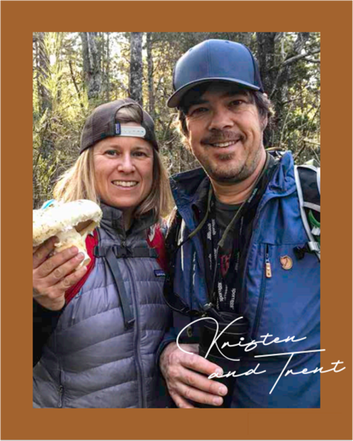Trent Blizzard
... on the subject of burn morels
join us on Zoom on April 21st!
join us on Zoom on April 21st!
|
Learn about the lifestyle and habitat of burn morels with modern forager and current NAMA president, Trent Blizzard.
Forest fires are a tragic event, but there is a silver lining. As the forest regenerates in the years following a burn, certain species of morels grow like crazy in the charred terrain. Some of these pyrophilous ('fire-loving') morel species appear to be exclusive to burned areas. While growing predominantly in the Western half of the US, they may occasionally also be found in the Upper Midwest. Learn how to find these morels in last year’s burns by locating the right terrain, elevation, aspect and forest types. Special attention will be given to online maps and pre-foraging research. |

|
Self-proclaimed modern forager Trent Blizzard resides in Cable, Wisconsin with Kristen, his wife. He has been trekking the forests of Colorado, the Midwest and the Pacific Northwest for years mostly with wild, edible mushrooms in mind. At first a hobby, the hunt for mushrooms quickly became nothing short of an obsession. Trent is a certified Wild Mushroom Identification Expert in Colorado, and a few other states. As a modern forager, he utilizes digital mapping, social media, GPS, phone apps, and even satellite internet while on the road.
You will find all of these adventures and more at modernforager.com Trent and Kristen Blizzard are also the authors of Wild Mushrooms: A Cookbook and Foraging Guide. Whether you are a seasoned forager or new to the wild and wonderful word of edible forest fungi, this book has something for you! You will find a wealth of tips and tricks for harvesting each mushroom, along with general cooking techniques and preservation methods. They endeavor to explore not only a selection of delicious cuisine and new methods of cooking these wild edibles, but the question of how to preserve and enjoy your harvests all year long. The book is also a celebration of people they have met over the years. You may find stories, tips and well-loved recipes from some of your own friends in here! |
|
If You Suspect a Poisoning
If you suspect you have consumed a poisonous mushroom, contact a physician, the closest hospital ER, poison control center, or dial 911, depending on the severity of the reaction. US Poison Control: 1-800-222-1222 The North American Mycological Association (NAMA) has information that may also be of help. Click here. We do not ID mushrooms through this website.
If you are in need of an ID consider uploading quality photos with multiple views of your specimen and descriptions of your find to Mushroom Observer or iNaturalist including our projects or post in Wild Food Wisconsin or Mushroom Identification Group. If you contact us and provide a way to get back to you, we may be able to provide suggestions for more identification resources you can use. You are always responsible for your own decisions taken on the basis of identification resources. |
Wisconsin Mycological Society (WMS) is dedicated to the study and enjoyment of mushrooms and other fungi throughout the state of Wisconsin. Education, safety, sustainability, community, and connecting with nature are our goals.
|
